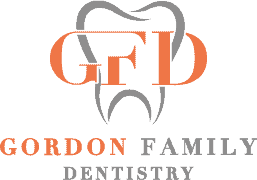The perfect smile is something that many people strive for; a bright, white set of teeth can bring confidence and joy to an individual’s life. Teeth whitening is a popular way to achieve this aesthetic goal, but it comes with an important caveat: the foods you choose after whitening are just as important as the procedure itself.
Certain foods can boost whitening results, while others can cause problems, including sensitivity. This article will discuss what to eat after teeth whitening for maximum results. We’ll look at which types of food will help enhance your beautiful new smile and which should be avoided to keep your teeth looking their best.
We will also provide tips on managing sensitivity that may occur after treatment and explain why eating well post-whitening is beneficial. Finally, we’ll go over some considerations before starting a whitening regimen so you can have the best experience possible.
Foods to Choose After Whitening
Choosing the right food following a whitening procedure can significantly impact the outcome. Eating white cheese, white bread, plain yoghurt and even indulging in a glass of white wine can help protect your newly whitened teeth from staining by minimizing contact with dark fruits or other foods known to stain teeth.
Lean proteins such as fish and chicken with light sauces or white cheese sticks for dipping can also provide beneficial nutrition without compromising the appearance of your newly whitened teeth, and adopting what is referred to as a ‘white diet’ after teeth whitening involves avoiding highly pigmented foods like tomato sauce, blackberries and soy sauce due to their potential ability to stain newly whitened teeth quickly.
This doesn’t mean you should altogether avoid these foods–it simply means it may be wise to brush immediately afterwards or at least rinse your mouth out with water. For maximum results from your recent whitening procedure, include plenty of lean proteins and healthy fats in your meals while limiting your intake of high-sugar processed carbohydrate snacks like chips and candy bars.
Following these guidelines will help you maintain the results of your recent treatment and support your overall health. With this in mind, it’s important to remember that moderation is key when consuming any food or beverage following a dental procedure such as teeth whitening.
To ensure maximum results, limiting darkly pigmented foods is a best practice until long-term maintenance has been established.
Foods to Avoid After Whitening
It is essential to consider which foods should be avoided following a whitening procedure to ensure optimal outcomes, But what are the most detrimental items?
Generally, it is recommended that individuals avoid consuming carbonated drinks, tobacco products and acidic foods for at least 24 hours after a whitening session. In addition, consumption of dark-coloured or citrusy foods and products containing food colouring or stain-causing elements, such as darker fish, may also impact the outcome of the whitening treatment.
In particular, dark-coloured and acidic foods can erode the enamel layer on teeth and expose the dentin layer beneath. This can increase sensitivity and reduce the effectiveness of a whitening treatment due to erosion of both protective layers of tooth enamel. Additionally, carbonated drinks can cause staining if consumed too soon after treatment due to their high acidity levels.
Overall, it is important for individuals who have recently undergone a whitening procedure to be mindful about what they consume to ensure maximum results from their treatments. Taking extra care with these specific types of food will help preserve the effects achieved through teeth whitening while reducing any potential risks associated with staining or increased sensitivity.
To manage any sensitivity experienced post-treatment, tips such as avoiding hot/cold beverages and brushing gently with fluoride toothpaste will help mitigate discomfort while still achieving desired outcomes from teeth whitening.
Tips for Managing Sensitivity
Maintaining healthy oral hygiene practices is essential for managing any sensitivity experienced following a whitening procedure. Steps to reduce dental sensitivity include avoiding foods that may cause irritation, such as white fish, cream cheese, non-sugary cereals and fruit juices. Additionally, it is essential to minimize the consumption of acidic beverages like soft drinks and egg whites.
To combat dental sensitivity after whitening, choose bland choices such as drinking water or having white teeth, which can help keep them from becoming overly sensitive. Keeping up with good oral hygiene practices and being mindful of what you eat are both critical components in managing the sensitivity associated with teeth whitening treatments.
Eating foods that contain proteins and vitamins can provide nutrition to your gums and reduce pain caused by sensitivity after whitening treatments. Additionally, eating foods rich in calcium will help strengthen and rebuild enamel on your teeth that may have been weakened during bleaching.
To ensure maximum results from a tooth whitening treatment, practice proper dental care habits while also making smart dietary decisions that will help protect your newly whitened smile from damage or decay over time. Eating nutrient-rich foods such as fruits and vegetables can provide essential nutrients to promote healthier gums, while dairy products like milk help remineralize enamel on your teeth – strengthening them against future sensitivity issues.
The Benefits of Eating Well After Whitening
By making wise nutritional choices, one can experience improved oral health after a whitening procedure.
Eating a balanced diet with light-coloured fruits and vegetables such as cucumbers and apples and light fish like cod and trout can help maintain professional teeth-whitening results.
After undergoing a professional whitening treatment, it is best to eat plain or lightly coloured yoghurt, such as white yoghurt. This helps to protect the newly whitened teeth from staining foods while allowing for full enjoyment of meals.
In addition to avoiding staining foods, eating healthy food after teeth whitening can contribute to better overall dental health. Eating crunchy fruits and vegetables with high water content helps cleanse plaque buildup on teeth. Eating lean proteins gives your smile an extra boost of enamel-strengthening minerals like phosphorus and calcium.
Choosing dark leafy greens also provides vitamins A and C, which are beneficial for keeping gums healthy! Eating well after experiencing a professional whitening treatment has many benefits beyond just getting a whiter smile; it promotes good oral hygiene habits that result in healthier teeth and gums in the long run.
Therefore, by taking time out to plan and make conscious decisions about what to eat after having your teeth professionally whitened, you can maximize your results for years to come. Taking these steps will ensure you enjoy the benefits of brighter pearly whites!
Considerations Before Whitening
Before undergoing a professional whitening treatment, it is important to consider the potential risks and benefits of the procedure.
The dietary choices made during the 24 hours before and after the treatment can significantly impact the results achieved.
Tomato sauces, black coffee, sweet potatoes, artificial colouring and any other acidic or dark-coloured foods should be avoided before teeth whitening as they can make stains more difficult to remove.
Following the whitening procedure, sticking with white and light-coloured foods that do not contain artificial colours is beneficial.
This includes lean proteins like fish or chicken served with boiled vegetables such as cauliflower or broccoli.
It also helps to include friendly foods such as dairy products like cheese, yogurt or milk, which act as a protective layer for teeth against staining agents from food or drinks.
Additionally, healthy snacks like nuts and fruits are great options for eating well after whitening treatments to achieve maximum results for a brighter smile.
By selecting wisely when it comes to what we eat before and after our teeth whitening procedure, we can help ensure that our efforts will be rewarded with long-lasting teeth whitening results.
Eating healthy and acid-freeacid-free foods can give us the best chance of enjoying an improved smile while avoiding damage caused by harmful substances in some food items.
Key Takeaways
Eating the right kinds of food after teeth whitening is an important part of achieving and maintaining maximum results. Choosing foods low in acidity and high in calcium can help protect teeth from further staining while avoiding acidic drinks like coffee or citrus fruits can prevent enamel erosion.
Also, managing sensitivity using toothpaste specifically designed for sensitive teeth can help keep teeth healthy post-whitening.
Research shows that eating well after whitening treatments has been linked to improved whiteness retention—up to 30% brighter than those who did not follow dietary guidelines.
Eating the right food after a whitening treatment effectively maintains a bright smile for extended periods.
To maintain a bright white smile, visit Gordon Family Dentistry in Gordon, NSW, Australia. Our experienced team of dentists can provide teeth whitening treatment and dietary advice to ensure you get maximum results and maintain your teeth’s health. Contact us today to learn how we can help you keep your smile looking its best!

